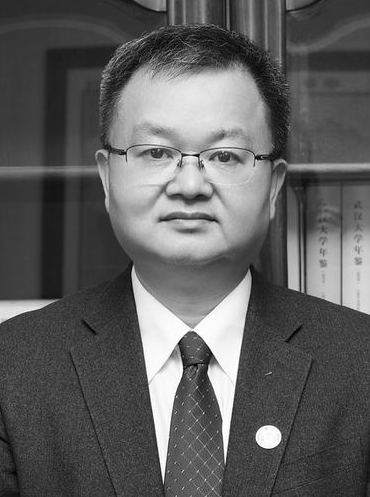
On the occasion of the National Two Sessions in 2023, China Science Daily invites representatives of the Two Sessions who have in-depth thinking and practice in the field of higher education to express their views on related issues, introduce the deep-seated changes that are currently taking place in the field of higher education, and contribute to the Suggestions for future development.

Zhang Pingwen, President of Wuhan University. Image source: Chinese Journal of Science
Zhang Pingwen, member of the National Committee of the Chinese People's Political Consultative Conference and president of Wuhan University:
Colleges and universities treat artificial intelligence as "blocking is worse than sparse"
Recently, ChatGPT has set off a new wave of artificial intelligence, and it has also caused some panic in the higher education community. According to reports, public schools in New York and Seattle in the United States, Sciences Po in France, and Hong Kong University in my country have banned students from using ChatGPT.
"I don't agree with some colleges and universities banning the use of ChatGPT. Young people have the desire to use high technology to acquire knowledge, which cannot be stopped by a ban." Zhang Pingwen, member of the National Committee of the Chinese People's Political Consultative Conference, academician of the Chinese Academy of Sciences, and president of Wuhan University, said, " The attitude towards the use of ChatGPT should be the same as that of flood control, blocking is worse than dredging."
In his view, compared with the previous generation, today's young people, as "digital natives", should use a positive attitude to understand and embrace social progress when life patterns change.
Essentially, ChatGPT is a tool application. "Universities can guide students in various ways so that they do not use ChatGPT to replace their own academic training, and do not touch the red line of academic norms, although these academic norms may be constantly reformed under the pressure of technology in the future." Zhang Pingwen said .
Facing the challenges of new technologies such as artificial intelligence, how to train students is a question that educators need to think deeply about.
Zhang Pingwen pointed out that the current "post-00s" students live in an era where the physical world, human society, and the virtual world are integrated, and they have the ability to better integrate the three. Many students are even more digitally skilled than teachers. This is where "a teacher is not as good as a disciple". Teachers must accept this fact, not be condescending, and learn from students with an open mind.
In real life, there are more and more phenomena of confrontation between people and technology. For example, he said that if a teacher is teaching in class, if students find it particularly boring, they may immediately give up the class and look for MOOCs with the same title on the Internet. Listen to whoever speaks well, which has brought unprecedented pressure to teachers' teaching. Nevertheless, Zhang Pingwen still believes that we should adopt an open attitude, understand students' behaviors, and even learn from them. In this process, we should update the teaching methods and achieve harmonious interaction between teachers and students.
He told China Science Daily that in this process, colleges and universities should pay more attention to the educational functions that cannot be replaced by artificial intelligence such as ChatGPT. They should train critical thinking and not be satisfied with the ready-made answers pushed by algorithms; The development of students' personality and spiritual realm.
There is a concept in the virtual world called "information cocoon room", which means that a person is easily surrounded by certain aspects of information due to his own preferences in the virtual world, unlike the real world where he can hear different voices. "In the virtual world, algorithms will automatically block some information for people, so that people can only see the information they want to see, but in the physical world, it is not easy to block all kinds of information. In terms of discerning the truth, education should play an important role," Zhang Pingwen said.
Confusing reality with fiction is a common problem among many young people today. Excessive indulging in the virtual world is not conducive to a person's physical and mental health, and many psychological problems are related to it. "To solve this problem, we need to strengthen the interpersonal interaction in reality and pay more attention to humanistic education." Zhang Pingwen pointed out.
He explained that while allowing students to understand the nature of the virtual world, colleges and universities should make students realize what is truly "people-oriented". Online lectures are very different from face-to-face lectures. From the two-way exchange of information, the classroom is better than the Internet. In the classroom, students experience the people-oriented education, learn how to behave and do things from the teachers' words and deeds, and experience their rigorous and realistic scientific spirit and professional quality of teaching without discrimination, which embodies the original meaning of Lideshuren .
In addition, with the development of digitalization and intelligence, the education of students' humanistic quality needs to be strengthened. Humanities education in colleges and universities will become more and more important in the future. "Especially disciplines such as literature, history and philosophy, as well as literature, history and philosophy courses in general education, already play an important role in the cultivation of students' personality and the improvement of their spiritual realm. In the future, their role will be more prominent. Interpersonal interaction and humanities The necessity of quality training fully demonstrates that digital technology cannot truly replace the environmental education role of colleges and universities." Zhang Pingwen said.
(Original title "Member of the National Committee of the Chinese People's Political Consultative Conference and President of Wuhan University Zhang Pingwen: Colleges and Universities Treat Artificial Intelligence "It's Better to Sparse It"")


